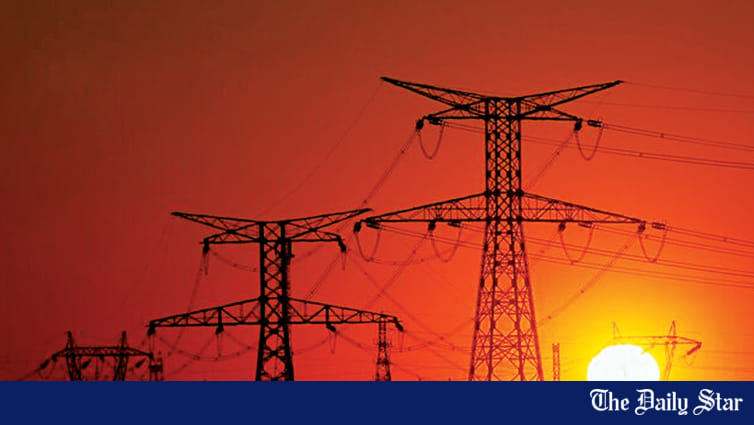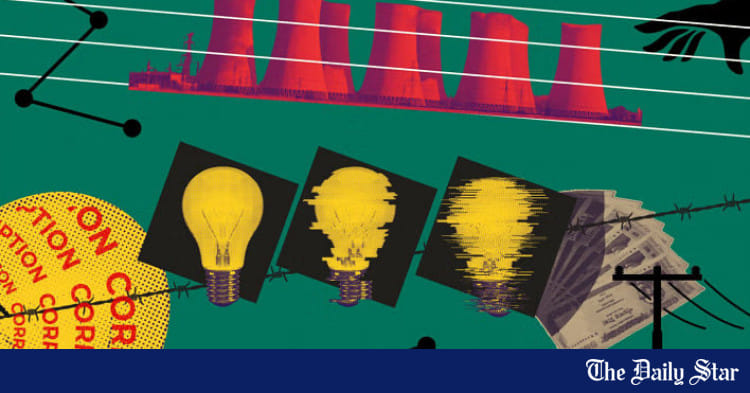- Copy to clipboard
- Thread starter
- #421
Saif
Senior Member
- Joined
- Jan 24, 2024
- Messages
- 15,397
- Reaction score
- 7,865
- Points
- 209
- Nation

- Residence

- Axis Group


Govt cancels land lease of Orion’s coal power project
The lease of the land awarded by the past Awami League government to the Orion Group to build a 635MW coal-based power plant in Cox’s Bazar’s Matarbari has been cancelled.
 www.newagebd.net
www.newagebd.net
Govt cancels land lease of Orion’s coal power project
Emran Hossain 27 May, 2025, 01:02
The lease of the land awarded by the past Awami League government to the Orion Group to build a 635MW coal-based power plant in Cox’s Bazar’s Matarbari has been cancelled.
‘Our board of directors recently cancelled the land lease given to the coal power project of the Orion Group,’ said Nazmul Haque, managing director, Coal Power Generation Company Bangladesh Limited.
The company on February 27, 2023 leased 225 acres of land to the Orion Group, one of the largest beneficiaries from controversial power deals awarded under the indemnity law adopted by the past Awami regime.
The decision to cancel the lease came amidst green activists organising protests demanding the cancellation of the Orion Group’s coal power project.
Approved on September 29, 2013, the coal power plant was initially permitted to be built in Munshiganj’s Gajaria. A power purchase agreement for 25 years was also signed between the Orion Group and the Bangladesh Power Development Board in April 2016.
The power purchase agreement required the plant to be operational in 45 months of its signing. But the Orion Group could not yet start the plant’s construction.
‘The cancellation of the land lease is reminiscent of the undue favours extended to the Orion Group by the past government desperately trying to implement the coal power project,’ said Hasan Mehedi, member secretary, Bangladesh Working Group on Ecology and Development.
Initially, the project boasted of potential loans from the USA, Poland, Korea and China, though the loans never arrived. About two years after the project’s deadline expired, the BPDB in early 2022 extended the project’s deadline until 2026, while advising it to relocate to Matarbari.
Once again the Orion Group failed to start the plant’s construction. But the BPDB, instead of cancelling the PPA, extended the project deadline again, until 2027. Then again the deadline was extended until 2030 just before the student-led mass-uprising brought the authoritarian AL regime to an end.
After failing to complete the project in its initial deadline, the Orion Group in July 2020 proposed to construct the power plant taking loan from the national reserve, but the plan did not work out.
Bangladesh Bank eventually changed its provision of financing coal power plant in November 2022, allowing the Orion Group to secure declaration from three state-owned banks, namely Janata Bank, Agrani Bank and Rupali Bank, to receive Tk 10,579 crore to build the power plant. Janata Bank promised to give it half of the loan.
The construction cost of the 635MW power plant, according to an analysis revealed earlier this month, would be 70 per cent higher than the cost generally needed for setting up coal power plants with double its capacity, such as, the 1,320MW Payra power plant.
The estimated capacity charge to be given for the power plant could stand at Tk 6.47 per unit, as the analysis estimated, requiring the payment of Tk 76,478 crore in capacity charge over the lifetime of the power plant had it been built.
The analysis also put the estimated the loss in public health and agricultural production due to the power plant at over Tk 55,000 crore.
The analysis drew attention to the poorly-informed environmental impact assessment based on which the power plant was approved.
Currently, coal accounts for 21 per cent of the country’s total installed power generation capacity of 27,424MW.
Two more major coal-based power plants worth 1,244MW and 1,247MW are set to come online by 2030.
Emran Hossain 27 May, 2025, 01:02
The lease of the land awarded by the past Awami League government to the Orion Group to build a 635MW coal-based power plant in Cox’s Bazar’s Matarbari has been cancelled.
‘Our board of directors recently cancelled the land lease given to the coal power project of the Orion Group,’ said Nazmul Haque, managing director, Coal Power Generation Company Bangladesh Limited.
The company on February 27, 2023 leased 225 acres of land to the Orion Group, one of the largest beneficiaries from controversial power deals awarded under the indemnity law adopted by the past Awami regime.
The decision to cancel the lease came amidst green activists organising protests demanding the cancellation of the Orion Group’s coal power project.
Approved on September 29, 2013, the coal power plant was initially permitted to be built in Munshiganj’s Gajaria. A power purchase agreement for 25 years was also signed between the Orion Group and the Bangladesh Power Development Board in April 2016.
The power purchase agreement required the plant to be operational in 45 months of its signing. But the Orion Group could not yet start the plant’s construction.
‘The cancellation of the land lease is reminiscent of the undue favours extended to the Orion Group by the past government desperately trying to implement the coal power project,’ said Hasan Mehedi, member secretary, Bangladesh Working Group on Ecology and Development.
Initially, the project boasted of potential loans from the USA, Poland, Korea and China, though the loans never arrived. About two years after the project’s deadline expired, the BPDB in early 2022 extended the project’s deadline until 2026, while advising it to relocate to Matarbari.
Once again the Orion Group failed to start the plant’s construction. But the BPDB, instead of cancelling the PPA, extended the project deadline again, until 2027. Then again the deadline was extended until 2030 just before the student-led mass-uprising brought the authoritarian AL regime to an end.
After failing to complete the project in its initial deadline, the Orion Group in July 2020 proposed to construct the power plant taking loan from the national reserve, but the plan did not work out.
Bangladesh Bank eventually changed its provision of financing coal power plant in November 2022, allowing the Orion Group to secure declaration from three state-owned banks, namely Janata Bank, Agrani Bank and Rupali Bank, to receive Tk 10,579 crore to build the power plant. Janata Bank promised to give it half of the loan.
The construction cost of the 635MW power plant, according to an analysis revealed earlier this month, would be 70 per cent higher than the cost generally needed for setting up coal power plants with double its capacity, such as, the 1,320MW Payra power plant.
The estimated capacity charge to be given for the power plant could stand at Tk 6.47 per unit, as the analysis estimated, requiring the payment of Tk 76,478 crore in capacity charge over the lifetime of the power plant had it been built.
The analysis also put the estimated the loss in public health and agricultural production due to the power plant at over Tk 55,000 crore.
The analysis drew attention to the poorly-informed environmental impact assessment based on which the power plant was approved.
Currently, coal accounts for 21 per cent of the country’s total installed power generation capacity of 27,424MW.
Two more major coal-based power plants worth 1,244MW and 1,247MW are set to come online by 2030.



















